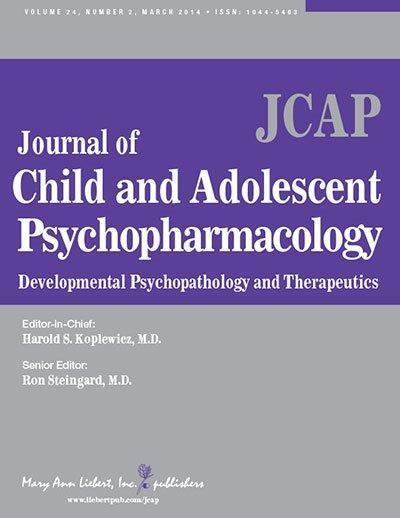New Rochelle, NY, April 7, 2014—Antipsychotic medications are often used for unlabeled indications, such as treatment of children and adolescents with attention-deficit hyperactivity disorder (ADHD). The results of a study of "atypical antipsychotic" drug use among youths with ADHD, comparing age groups, Medicaid eligibility, and presence in foster care are presented in Journal of Child and Adolescent Psychopharmacology, a peer-reviewed journal from Mary Ann Liebert, Inc., publishers. The article is available free on the Journal of Child and Adolescent Psychopharmacology website.
Mehmet Burcu and Julie Zito, University of Maryland, Aloysius Ibe, Morgan State University, and Daniel Safer, Johns Hopkins Medical Institutions, Baltimore, MD, report that nearly one-third of the ADHD-diagnosed foster care youth ages 2-17 years of age included in the assessment received atypical antipsychotics during the study period. The most common medications given were risperidone, aripiprazole, and quetiapine, according to the article "Atypical Antipsychotic Use Among Medicaid-Insured Children and Adolescents: Duration, Safety, and Monitoring."

The
Journal of Child and Adolescent Psychopharmacology is an authoritative peer-reviewed journal published 10 times a year in online with Open Access options and in print. The Journal is dedicated to child and adolescent psychiatry and behavioral pediatrics, covering clinical and biological aspects of child and adolescent psychopharmacology and developmental neurobiology. Complete tables of content and a sample issue may be viewed online on the Journal of Child and Adolescent Psychopharmacology website.
(Photo Credit: © Mary Ann Liebert, Inc., publishers)
"This study adds critical hard data to our understanding of a persistent and unacceptable trend in pediatric psychiatry," says Harold S. Koplewicz, MD, Editor-in-Chief of Journal of Child and Adolescent Psychopharmacology, and President, Child Mind Institute, New York, NY. "Our poorest, most vulnerable children, lacking access to evidence-based care, are receiving potentially harmful treatment with little oversight. The highlight of Burcu et al.'s paper for any reader should be the simple but necessary recommendations for antipsychotic prescribing and monitoring in these populations."